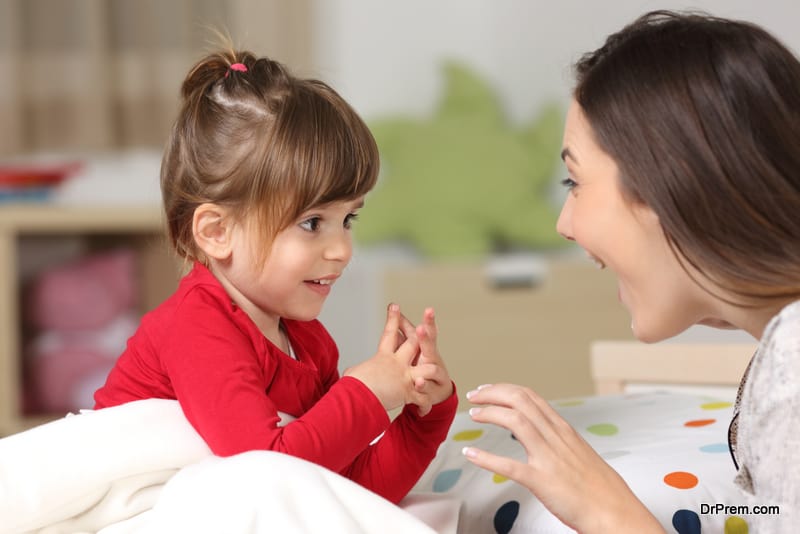Have you ever observed how your child is expressing his/her emotions while responding to any stimulus or interacting with peers and others? The way your child communicates or takes control of the situation reflects his/her emotional intelligence. It goes a long way in helping negotiating situations and developing clear thought patterns.
Daniel Goleman, the leading psychologist and author, places Emotional Intelligence or Emotional Quotient (EQ) much higher above Intelligence Quotient (IQ), a measure of person’s academic intelligence.
Research published in Forbes article 2013 conducted by the Carnegie Institute of Technology states that 85% of financial success achieved by individuals can be attributed to human engineering skills that include personality, communication skills, negotiation and leadership and 15% of it can be accounted for technical knowledge.
Unfortunately, the world is focused on developing the child’s IQ and EQ takes a back seat while it ought to be the other way round.
Why Emotional Intelligence matters?
 Allowing emotions to run high can bring up undesirable consequences creating irreversible damage. Self-regulation is a big attribute of emotional intelligence which is the ability to manage and express emotions in a more acceptable manner in varied situations. Put into practice, children can enhance their capacity of self-regulation of emotion.
Allowing emotions to run high can bring up undesirable consequences creating irreversible damage. Self-regulation is a big attribute of emotional intelligence which is the ability to manage and express emotions in a more acceptable manner in varied situations. Put into practice, children can enhance their capacity of self-regulation of emotion.
People with high EQ shine more as good leaders and managers and deliver better in collaborative work environments. Therefore, if you teach your child self-regulation early, you are on the track of making him/her a great personality and a successful person with high EQ.
A study on self-control and self-regulation was conducted among school-going children. Later, a follow-up study was again conducted on the same participants in their thirties. The results were fascinating! It showed self-control projected higher success than the IQ and was reflected even in their socioeconomic status and family environment. The children with better self-control led a healthier life, had better earnings and were less likely to indulge in crime and alcoholism.
Steps to grow your child’s emotional intelligence:
Growing an emotionally balanced child is possible but demands strong perseverance. Here are the following useful steps to help you:
1. Helping your child in identifying his emotions:
 Help your child to identify their emotions like anger, disappointment, frustrated etc. They will be able to take ownership of their emotions. You should also point out how his emotions are affecting others. If he is feeling upset or disappointed, ask him to describe it.
Help your child to identify their emotions like anger, disappointment, frustrated etc. They will be able to take ownership of their emotions. You should also point out how his emotions are affecting others. If he is feeling upset or disappointed, ask him to describe it.
You can make him write about his feelings or draw a picture. The same can be done with good emotions too. By this way, your child would be able to explain the emotion as well.
2. Talk about and demonstrate your emotions:
Another useful step to strengthen your child’s emotional control is by demonstrating your own emotions. Discuss your feelings with your child and watch how he perceives them. Whenever as a parent we experience strong emotions like feeling sad or getting angry, our kids are likely to be aware of this.
Here is the opportunity to demonstrate how you deal with these strong emotions and get over those. This would help your child to stay emotionally balanced having a grip over self-emotions from a very early age. You should discuss about positive emotions too when you are feeling happy or elated.
Often, some actions from our child trigger negative emotions in us. You should bear it in mind not to put the blame on your child for making you angry or sad. You are responsible for your own emotions. This is an invaluable lesson to teach your child.
3. Empathize with your child acknowledging his perspective:
 At times, you can’t do anything in your kid’s upsets but can empathize. If your child finds his feelings are being recognized, it will help him a lot in overcoming those troublesome emotions. Sometimes your child’s upsets may be blown out of proportion.
At times, you can’t do anything in your kid’s upsets but can empathize. If your child finds his feelings are being recognized, it will help him a lot in overcoming those troublesome emotions. Sometimes your child’s upsets may be blown out of proportion.
But keep in mind that we all have stored up emotions and we experience them when we find a safe haven. Empathizing does not always mean agreeing to your child’s upset emotions which may not have valid grounds.
But the feeling of being understood triggers soothing bio-chemicals that help in strengthening his neural pathway which will go a long way in developing his emotional intelligence. It will also help your child develop empathy towards others, a strong component for high EQ.
4. Allow free expression:
Accept your child’s emotional expressions. Do not deny or minimize them making your child feel it is a shameful act. For example, if you disapprove his fear or anger, it won’t stop your child from having these feelings as they are natural emotions but he will suppress them.
Tell your child that these feelings are understandable being a human although certain actions need to be restricted. If your child gets mad over his sibling breaking his favorite toy, pacify him that you acknowledge his feelings of getting upset at this.
At the same time, teach him that it is not the right thing to hit back out of this madness. You can guide him to speak to this sibling of his feelings. As you recognize your child’s emotions, it helps your child accept his own emotions. This will help him resolve his own emotions and have better control over it as he grows.
5. Listening to your child’s feelings:
 Emotions do not dissipate unless heard. You need to be a good listener to help build your child’s emotional intelligence. Remember your child’s continuous craving to grab your attention to his feelings as a toddler? Once a child is free to express his feelings being aware that somebody is there to lend a patient ear, he will easily wash off his feelings and move on.
Emotions do not dissipate unless heard. You need to be a good listener to help build your child’s emotional intelligence. Remember your child’s continuous craving to grab your attention to his feelings as a toddler? Once a child is free to express his feelings being aware that somebody is there to lend a patient ear, he will easily wash off his feelings and move on.
When the child gets a chance to show his feelings, it gradually helps him to grow as an affectionate and cooperative individual. But he will need a fully safe and secured pail to pour out his feelings. As a parent, you need to be that sturdy pail being a good listener.
Your listening helps in healing their hurt soul and body. It also helps them to trust their own emotions and handle them in a mature way as they grow up.
6. Teach how to solve problems:
Emotions should be considered as messages, not mental wastes. You need to teach them how to go through these with tolerance without acting on them which is not always necessary. Often, when the child feels his emotions are getting accepted and lets them get loose, it also opens up the path for problem-solving.
Sometimes kids can do this on their own sometimes they may need some brainstorming. Instead of doing it for them, help them to devise ways to sort out the problem. Ask questions and drive them to find the right answers which will make them confident.
Apart from expressing feelings, kids also need to nurture skills of problem-solving by shifting their emotional gears. Research says that mere empathizing with the child is not enough to build his emotional intelligence. They should be coached not to be at the mercy of their emotions. As kids build their problem-solving skills, automatically it helps in developing empathy towards others, a marker of high EQ.



